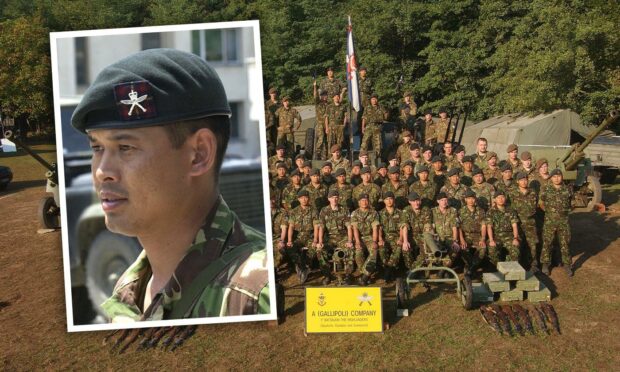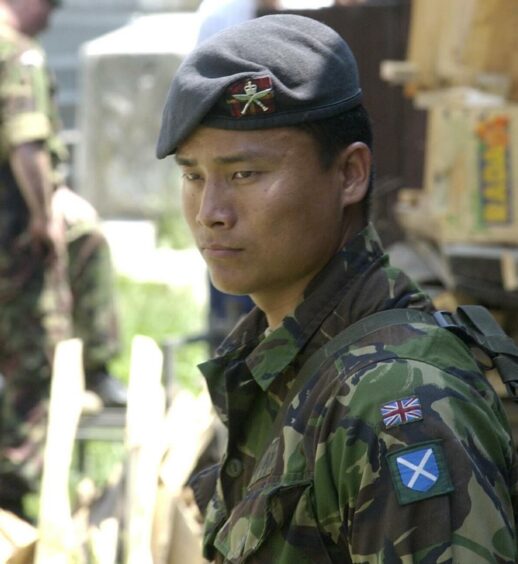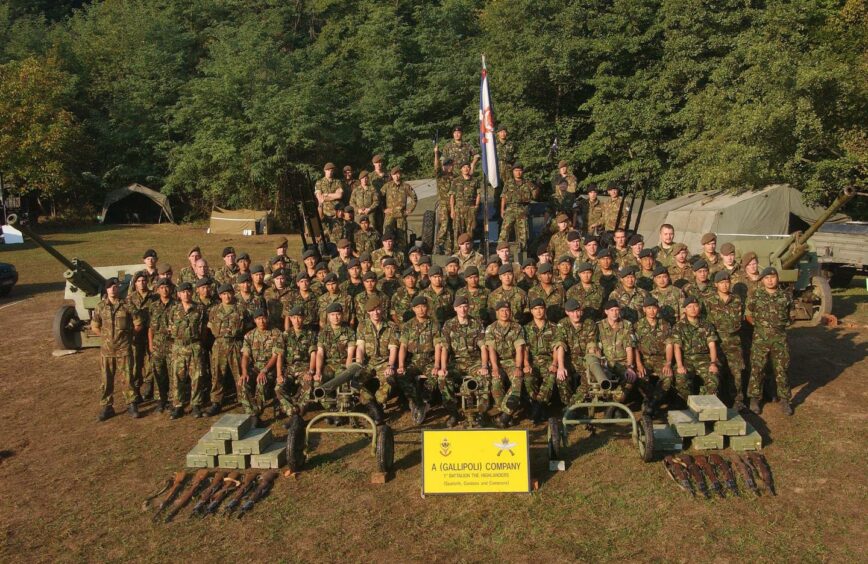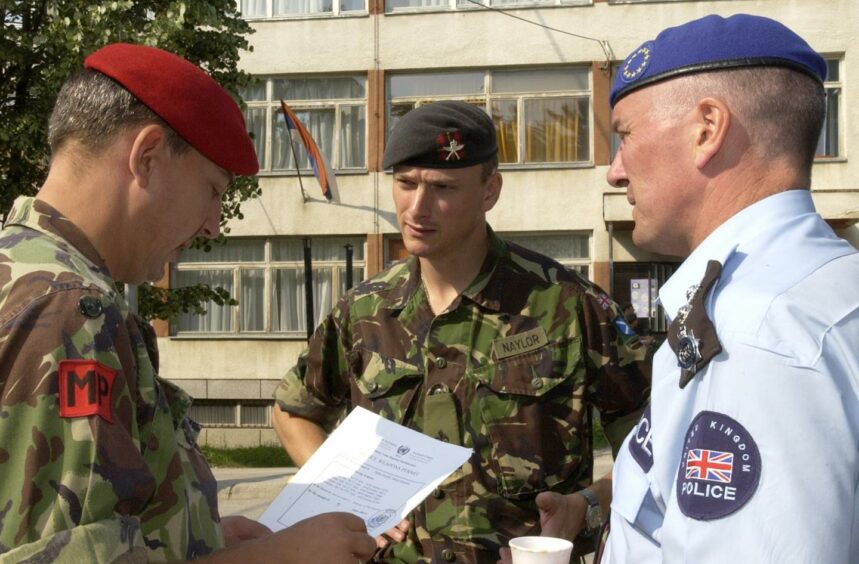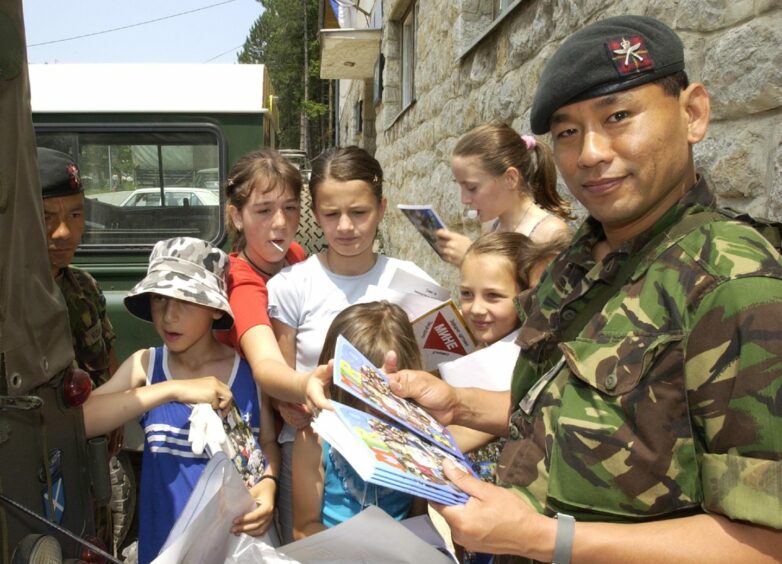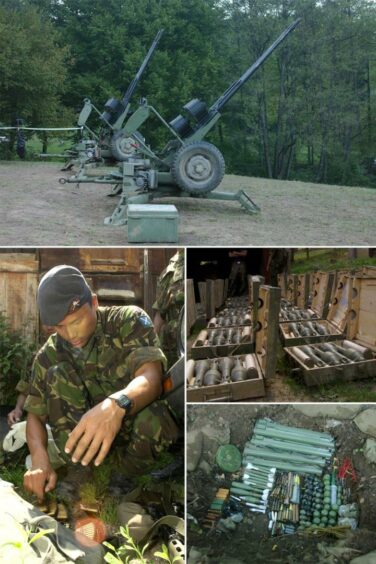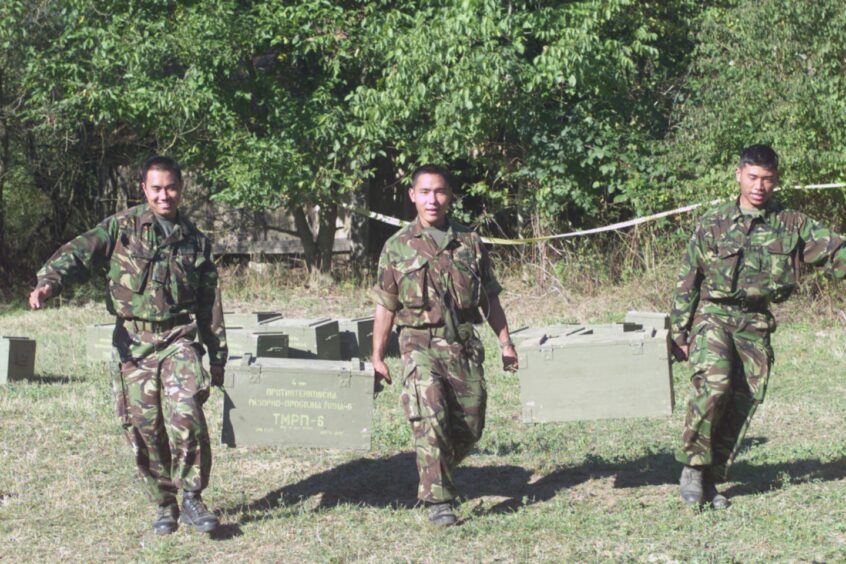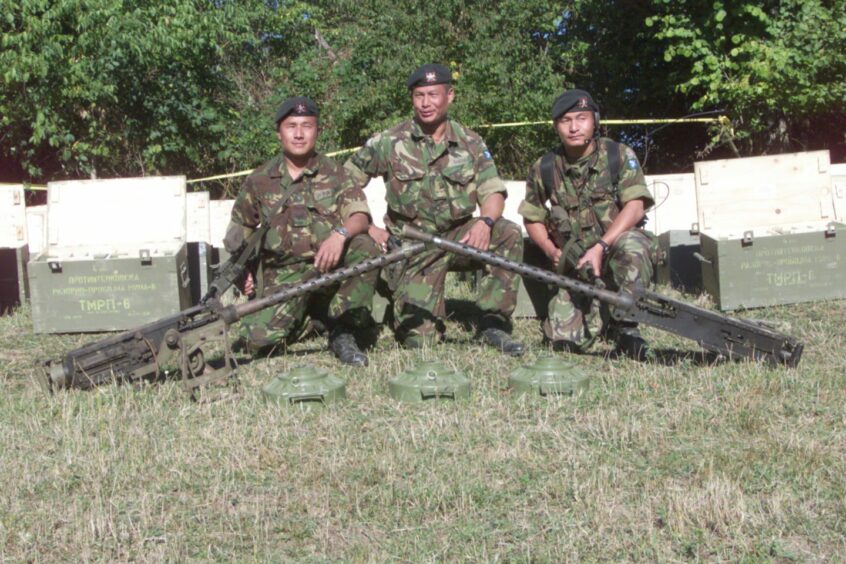They’ve been part of the army for more than 200 years, tough, fearsome warriors, fighting loyally for the British in conflicts all over the world.
‘Better to die than be a coward’- the motto of the legendary British Army Gurkhas.
There’s been an empathy between the Scots and the Gurkhas since the very beginning, when many Scottish officers served in the Gurkha regiments formed after the Anglo- Nepalese war of 1814-16, in the service of the East India Company.
Today, the Gurkhas make the most of their Scottish ties by taking part in training exercises in private Highland estates.
Many’s the deer which has fallen victim to the Gurkha’s stalking, tracking and stealth skills.
But almost 20 years ago, Scotland had its own Gurkha reinforcement company in 1st Battalion The Highlanders – and it was a very comfortable and happy relationship, says their commanding officer at the time, Quentin Naylor MBE.
From tough, poor roots in the hills of Nepal, the fighters found common bonds with The Highlanders, who welcomed them with open arms.
How did there come to be Gurkha Highlanders?
Quentin said: “In the early 2000s the infantry was badly undermanned, and the Gurkhas never had a challenge in filling their battalions, so the decision was made to raise a number of Gurkha reinforcement companies.
“The Parachutes had one, the Prince of Wales’s Royal Regiment had one, and the Royal Scots had one.
“The Gurkha company supporting the Royal Scots moved over to the 1st Battalion The Highlanders in around 2002 and was based in Redford barracks in Edinburgh.
“The Highlanders were tremendously welcoming to the Gurkha soldiers.”
Quentin, an army scholar from Altrincham College and Leeds University, had himself been set on joining the Gurkhas from the age of 14, inspired by reading of their fighting prowess, physical elite and bond between comrades.
He joined 7th (Duke of Edinburgh’s Own) Gurkha Rifles, and spent the early years of his career in Brunei.
He said: “The sort of soldiers that The Highlanders recruited had some real parallels with the Gurkhas we brought over.
“They were recruited from the hills of Nepal, farmers, crofters, hill boys, and The Highlanders recruit from the tradition army recruitment areas of Inverness, the Hebrides, not dissimilar really, so there were many similarities between the Highlands and the hills of Nepal.
“In Asia everything Scottish has great kudos and is very highly thought of, so the Gurkhas loved being part of that, even though they struggled to understand a lot of the accents.
“If you think of a Peterhead accent, even to the English speaker it’s really tricky but to a Gurkha it’s really difficult.”
In 2003 the company deployed to Bosnia on peacekeeping duties, where the Gurkhas came into their own.
Quentin said: “It was a really successful tour.
“We found 50 tons of hidden munitions in the period we were there.”
First came Operation Bagration, in Knezevo in June 2003.
“We had reason to believe the Bosnian Serb police force was undermining the Dayton Accord [the General Framework Agreement for Peace in Bosnia and Herzogovina] and keeping stashes of weapons.
“We were concerned it went beyond local level.
“We raided the police station and searched the homes of police officers. It was a hornet’s nest.
“The Gurkhas were very good in this difficult situation, where people thought the war could flare up again.”
This operation earned Quentin an MBE.
Three months later, the company was in north-west Bosnia, in Republika Srbska around the towns of Bos Dubica and Prijedor.
With the rest of the battalion, they were carrying out Operation Timberwolf, keeping a safe, secure environment.
“Part of that was to identify and get rid of weapons that were being held as a sort of insurance policy in case the Dayton Accord went wrong.
“The Gurkhas have a great sense of sniffing out if there’s something wrong, particularly out in the country.
“We’d come back from tours in the jungle in Brunei where the Gurkhas were good trackers, can read the landscape and identify things that weren’t right.
“They’re very good at chatting to people, because when you go and sit with a farmer in Bosnia it’s not dissimilar from a farmer in the hills of Nepal, so you can ask him how his cattle are, and what the harvest is like over a glass of plum brandy, then you can mention we are looking for weapons, and it comes out, ‘this guy has a rocket launcher in his basement, I know he’s been trying to get rid of it but he doesn’t know what to do’.
“We found 10 tons of mines in a farmer’s barn, I found two towed artillery pieces in a wood. It was an incredibly successful operation.”
Quentin nurtures happy memories of that warm Bosnian summer with his company of Gurkhas.
“It was incredibly satisfying.
“One of the best jobs you can do is commanding a Gurkha company, but commanding it in The Highlanders was incredibly special.”
After two Bosnia tours, The Highlanders reinforcement company was disbanded, and the Gurkhas returned to the Royal Gurkha Rifles.
